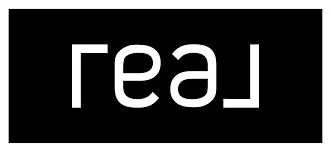Helpful Resources
Take Advantage of Free Home Buying Seminars and Classes
Through local partnerships, the Washington State Housing Commission helps homebuyers learn how to purchase and maintain a home. Commission-sponsored homebuyer education seminars(link is external) are the first step in purchasing a home. They are free and open to the public, include information about the Commission's first mortgage programs, downpayment assistance, and other loan programs; and are accepted by all affordable housing loan programs as meeting or exceeding educational requirements.
Through local partnerships, the Washington State Housing Commission helps homebuyers learn how to purchase and maintain a home. Commission-sponsored homebuyer education seminars(link is external) are the first step in purchasing a home. They are free and open to the public, include information about the Commission's first mortgage programs, downpayment assistance, and other loan programs; and are accepted by all affordable housing loan programs as meeting or exceeding educational requirements.
Determine How Much Home You Can Afford
Determining how much you can afford is an important first step in shopping. Ask yourself the following questions:
Determining how much you can afford is an important first step in shopping. Ask yourself the following questions:
How much will your monthly payments be? Take into consideration future changes in your household income.
Are you anticipating a promotion at work that would increase your salary?
Will you be adjusting from a double income family to a single income in the coming years?
If the interest rate is adjustable - can you afford the larger payment when the rates increase?
Your debt-to-income ratio is the amount of debt payments per month divided by the amount of your income per month. This ratio helps lenders decide how large a monthly payment you can afford.
Are you anticipating a promotion at work that would increase your salary?
Will you be adjusting from a double income family to a single income in the coming years?
If the interest rate is adjustable - can you afford the larger payment when the rates increase?
Your debt-to-income ratio is the amount of debt payments per month divided by the amount of your income per month. This ratio helps lenders decide how large a monthly payment you can afford.
In addition to the lender knowing what you can afford, you must be comfortable with the size of your monthly payment. One way to do this is to utilize a mortgage calculator. This can be found on-line, and is an easy-to-use tool to help you d
Check Your Credit Report and Score
Before you start applying for loans, check your credit report and score, and fix any blemishes you may find. This can help you get a better interest rate. You can check your credit report for free at www.annualcreditreport.com(link is external).
Before you start applying for loans, check your credit report and score, and fix any blemishes you may find. This can help you get a better interest rate. You can check your credit report for free at www.annualcreditreport.com(link is external).
Know the Difference Between Loan Pre-Qualification and Loan Pre-Approval
Loan pre-qualification is a best guess at your housing and loan affordability. Pre-qualification is typically based upon a verbal conversation between potential borrowers and a lender and doesn’t include formal underwriting or supporting documentation. A loan pre-qualification is not a commitment to lend.
Loan pre-qualification is a best guess at your housing and loan affordability. Pre-qualification is typically based upon a verbal conversation between potential borrowers and a lender and doesn’t include formal underwriting or supporting documentation. A loan pre-qualification is not a commitment to lend.
Loan approval comes after a formal underwriting of a borrower’s loan request. Loan approval is achieved with a complete mortgage loan application.
There are many Mortgage broker options including your current financial institution, Credit Unions or outside lenders. We can also recommend REAL Mortgage.
Additional information
What Do Lenders Look for When Determining Loan Eligibility?
Generally lenders look at several things:
Generally lenders look at several things:
Your income
Your down payment or equity
Your credit history and credit score
Your debt-to-income ratio
How much money you have saved
and the property you plan to purchase.
Your down payment or equity
Your credit history and credit score
Your debt-to-income ratio
How much money you have saved
and the property you plan to purchase.
Be Prepared for Closing Costs
Closing costs are all the different charges that you’ll be required to pay at or before the closing. They include charges related to the purchase of your home, and charges related to getting a mortgage.
Closing costs are all the different charges that you’ll be required to pay at or before the closing. They include charges related to the purchase of your home, and charges related to getting a mortgage.
Depending on the loan, closing costs run typically between three and five percent of the loan.
Order DFI’s Free Guide to Home Loans Workbook
DFI’s guide to Home Loans workbook walks you through the mortgage process and is free in hard copy form for Washington State residents.
DFI’s guide to Home Loans workbook walks you through the mortgage process and is free in hard copy form for Washington State residents.
There are many resources available to assist buyers with financial needs. From down payment assistance to programs that may offer discounts on mortage interest rates. A good resource is the Washington Housing Finance Commission.

